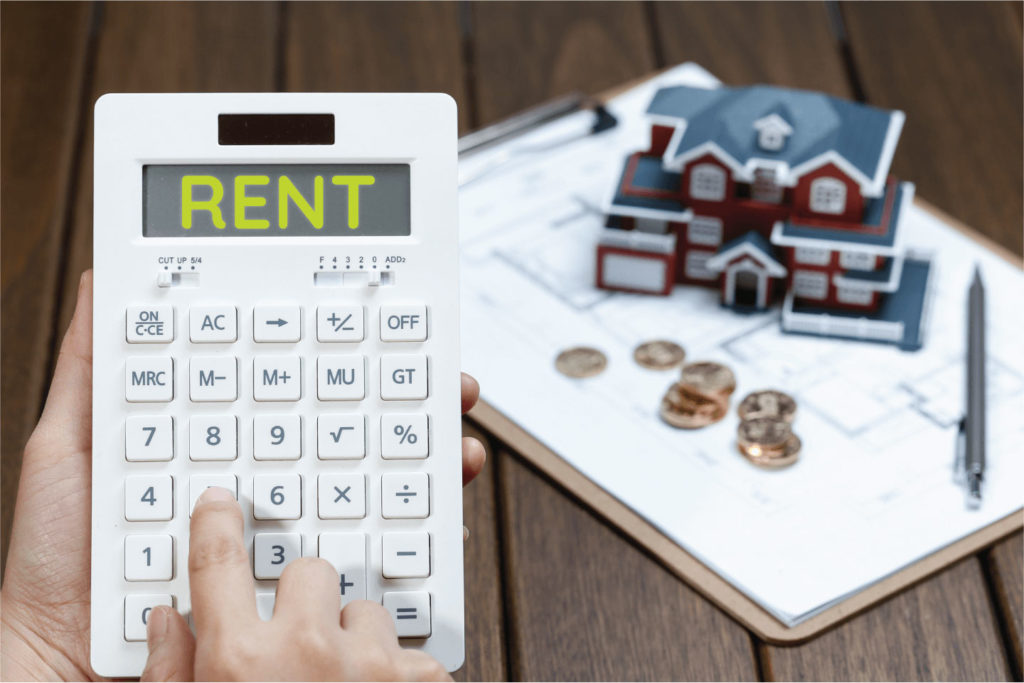How Much Rent Can I Afford in Australia?
It goes without saying that renting a home is a big financial commitment, and it’s crucial to assess how much rent you can afford before signing a lease.
In Australia, where rental prices vary widely depending on the city and neighbourhood, understanding your budget and the factors influencing rental costs is essential.
With that being said, here’s a guide to help you figure out how much rent you can afford.
Cross Utilities Off Your List
Get connectedDetermine Your Budget
The first step in figuring out how much rent you can afford is to create a detailed rental budget. This involves calculating your monthly income and expenses so you can compare the budget to the potential rent payment.
When calculating your income, be sure to include your net income after taxes. If you have multiple sources of income, add them all up.
Be sure to list all your monthly expenses, including utilities, groceries, transportation, insurance, entertainment, savings, and any debt repayments to any loans or credit cards.

The 30% Rule
A common guideline when it comes to affordability for monthly rent is to spend no more than 30% of your gross monthly income on rent. This self-imposed rule helps ensure that you have enough left over for other essential living expenses and savings.
For example, if your monthly gross income is $5,000, then the calculation should be; 0.30×5,000=15,000.30. You should aim to spend no more than $1,500 on rent in this case.
An even better alternative to crunching the numbers is using our calculator below to determine what 30% of your monthly gross income looks below!
Consider Your Lifestyle and Priorities
While the 30% rule is a good starting point, your personal circumstances might require adjustments. Things like location, household size and any additional future plans will either assist the 30% you’ve got to work with or force some changes in looking at rental properties in high-demand houses.
Rent prices in major cities like Sydney and Melbourne are higher compared to regional areas, so be sure to determine what amenities and proximity to work or school are important to you. Renting a larger place for a family will naturally cost more than a smaller apartment for one or two people too.
Lastly, if you plan to save for a home deposit or other major expenses, you might want to allocate less to rent.

Additional Costs
Rent is not the only expense when renting a property, as there are several additional expenses to factor in. This ranges from utilities and insurance to maintenance and bond.
Some properties may require you to cover minor maintenance and repair costs, which are typically listed in the tenancy agreement so you’re not blindsided by the costs.
Other additional costs include the cost of hiring movers or renting a vehicle, and having enough funds for the rental bond, which is the equivalent of 4-6 weeks’ rent and will be required upfront.
Lastly, take into account the cost of contents insurance and how much your utility bills will cost, including electricity, gas, internet and water. If you need a glimpse into how much these bills with add up to, check out our article on the average utility bill cost for Australians here!
The not-so-obvious costs
Behind the thrill of moving to a new house lies a series of hidden costs that can quickly add up if you’re not aware of them!
Check out our article below on the hidden costs of moving house, where we dive into all the sneaky additional costs that the average Australian mover can come to expect when moving house.
How is Monthly Rent Calculated?
Rent is typically quoted per the weekly rate, and payments are made per calendar month. The most common mistake renters make is to assume that there are 4 weeks in a month. As you may have already discovered, multiplying your weekly rental payments by 4 does not equal the monthly rent vs weekly rent owed.
Why? The answer is simple, not every month has an equal number of days. This means that calculating your monthly rent is not as straightforward as multiplying the weekly rent by 4 or the fortnightly rent by 2 (and don’t forget leap years).
To calculate your monthly rent repayment, use this simple formula to convert weekly rent into the monthly rent payment.
- Step 1: Weekly Rent ÷ 7 = Daily Rent amount
- Step 2: Daily Rent x 365 = Yearly Rent amount
- Step 3: Yearly Rent ÷ 12 = Monthly rent amount
For example, if the rent is quoted as being $400 per week, we would plug 400 into the formula to get the monthly rent amount (step 3) below.
- Step 1: 400 ÷ 7 = 57.14
- Step 2: 42.85 x 365 = 20,856
- Step 3: 20,856 ÷ 12 = 1,738
If the weekly rent rate is $400, the monthly rent repayment will total $1,738.
Voilà!

Use Our Rent Calculator!
To save you the hassle of punching in the numbers above, we’ve created our own calculator so you can calculate your potential rent costs from weekly to monthly.
A quick disclaimer: We give no warranties on rent calculations, rent increases, interest rates, or monthly rent repayments. If you have any further input or any questions about leasing a rental property, make sure you contact your real estate agent or property manager. They will explain your month’s rent, security deposit, upfront costs, rental period, and any other tenancy or leasing concerns you may have!
Evaluate Rental Market Trends
Once you’ve laid out your financial goals and rental budget, it’s not a bad idea to keep an eye on the rental market trends in your desired location.
Websites like Domain, Realestate.com.au, and local real estate agencies provide up-to-date information on average rental prices and trends in different suburbs and cities.
Cross Utilities Off Your List
Get connectedDetermining how much rent you can afford in Australia requires careful consideration of your financial situation, lifestyle, and the rental market.
By adhering to the 30% rule, creating a detailed budget, and factoring in additional costs, you can make an informed decision that ensures you live comfortably within your means. Remember to regularly review your budget and adjust as needed, especially if your income or expenses change.






 Justyn Harrison
Justyn Harrison 
